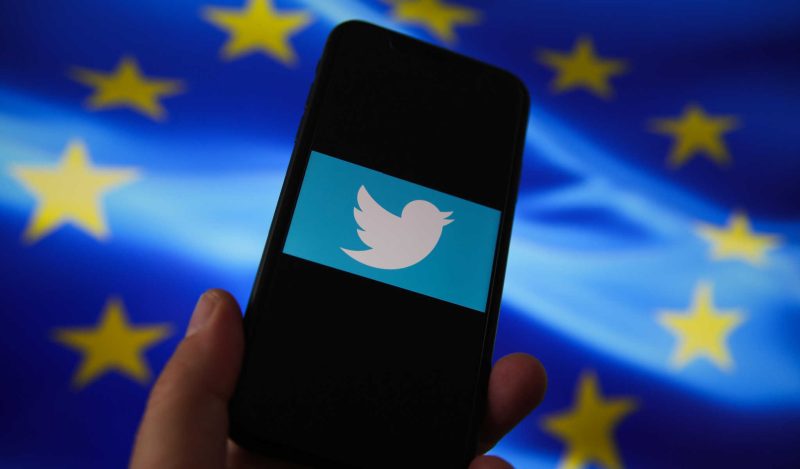Elon Musk appears to have convinced the Twitter masses that he is their champion of free speech, with his recent appearance on the BBC providing yet another opportunity to burnish his bona fides in this regard.
“Who’s to say that something is misinformation?” Musk asked the BBC’s befuddled interviewer, “Who’s the arbiter of that?”
Good point and fair enough.
But the problem with this and all of Musk’s critical remarks about the very notions of “misinformation” and “disinformation” is that Elon Musk’s Twitter is itself a signatory of the European Union’s so-called “Code of Practice on Disinformation” and “The Code” requires platforms like Twitter precisely to censor “mis-” and “disinformation.”
And “require” here means require: as discussed in my previous articles here and here, the EU’s Digital Services Act (DSA) renders the commitments undertaken in the Code mandatory on pain of massive fines. As I have likewise documented in those articles, Elon Musk has repeatedly flagged not only his compliance with, but indeed his full-throated approval of the DSA.
How in the world is he able to square that circle?
Furthermore, Twitter is even a member of a Permanent Task-Force on “disinformation” that has been set up under the Code and that meets at least every six months, as well as in sub-groups in between the plenary sessions. (See Section IX of The Code, which is available here.)
The task-force is chaired by none other than the EU’s executive body, the European Commission: the very same European Commission that the DSA invests with the exclusive power to assess compliance with the Code and apply penalties if a platform is found to be wanting.
Who is to say something is misinformation, who is the arbiter of that? Well, there you have it. In the case of Twitter and all the platforms cooperating with the EU, the European Commission is the arbiter of that, since it is the Commission that will decide if Twitter and the other platforms are doing enough to combat it.
So, here is my question for Elon Musk: What exactly are you or your representatives doing in the EU’s Permanent Task-Force on disinformation?
In a much celebrated Twitter bon mot, you said, “People who throw the disinformation word around constantly are almost certainly guilty of engaging in it.” Okay. Well, what are you or your representatives discussing in the Permanent Task-Force then? Wouldn’t it be “disinformation?” Because discussing “disinformation” and how to “combat” it to the EU’s satisfaction is the whole point of the task-force!
Furthermore, what sub-groups on specific issues is Twitter participating in, per Commitment 37.4 of “The Code?”
To what extent has the European Commission or perhaps the European foreign service (the EEAS), which is also present in the Permanent Task-Force, had input into the development of Twitter’s “algorithm,” which regulates the “reach” and visibility of Twitter users?
For, as discussed in my last article on this subject, the European Commission is setting up a “Centre for Algorithmic Transparency” specifically for this purpose. Furthermore, as parts of the algorithm that you have published make clear, suppressing “misinformation” is built right into it. See below, for instance.


Getting flagged for such “violations” will result in restricting of visibility and/or “downranking.” So, yes, who’s to say that something is misinformation, who is the arbiter of that? Because Twitter is saying that right in its code and it must be recognizing someone or something as the arbiter.
Speaking of which, it is surely no coincidence that the general categories of misinformation employed in the algorithm mirror the main areas of concern targeted by the EU in its efforts to “regulate” online speech: “medical misinfo,” of course, in the context of the Covid-19 pandemic, but also “civic misinfo” in the context of contested elections – for instance, reports of fraud in recent elections in France or Brazil – or “crisis misinfo” in the context of the war in Ukraine.
Under the new Twitter regime, the stealth censorship of the algorithm has largely replaced the open censorship of the permaban. Shadow-banning has, in effect, become the norm.
Once upon a time, Elon Musk pledged to inform Twitter users if they are being shadow-banned and the reason why. (See here). But like his promise of a “general amnesty” for all banned Twitter accounts, this pledge too has gone unfulfilled.
Perhaps the European Commission prefers the censorship to remain in the shadows and has thus vetoed the idea, as it vetoed the “general amnesty.”
But, in any case, why does Elon Musk never address his platform’s involvement with the European Union’s censorship regime? He talks all the time about incidental contacts with US government agencies. What is going on in the Permanent Task-Force on disinformation, Elon Musk, and how can it possibly be compatible with your ostensible commitment to free speech?
Join the conversation:


Published under a Creative Commons Attribution 4.0 International License
For reprints, please set the canonical link back to the original Brownstone Institute Article and Author.









